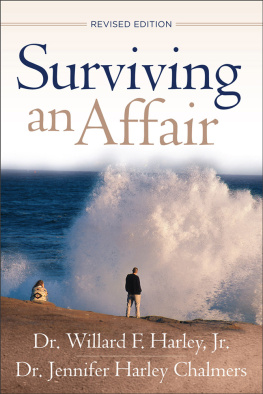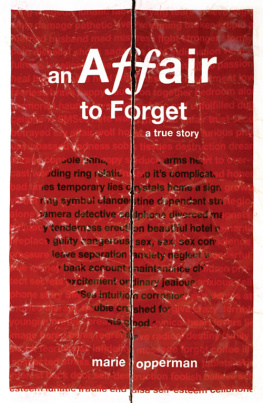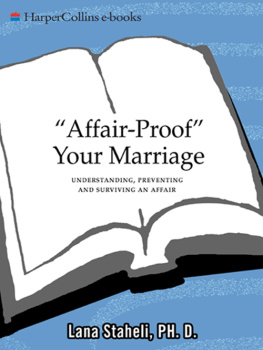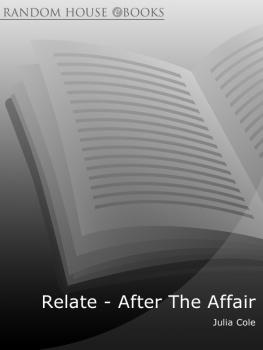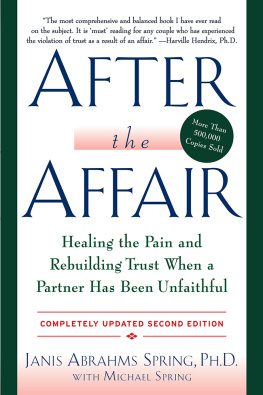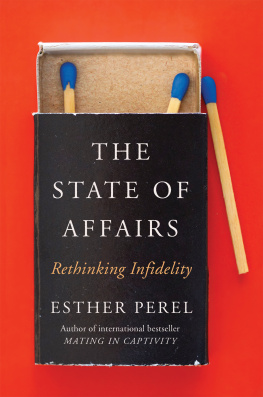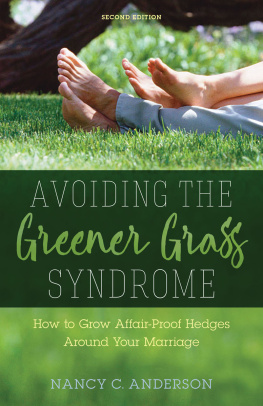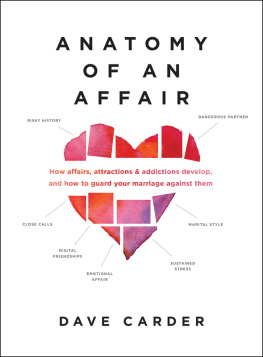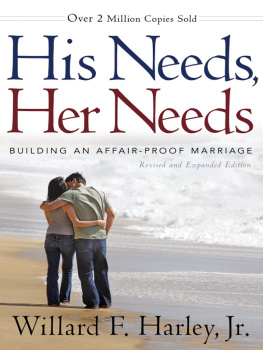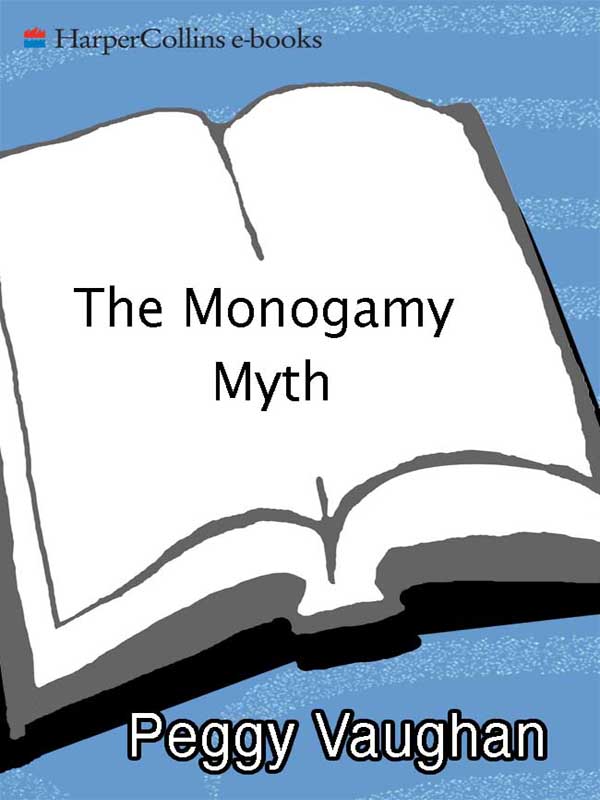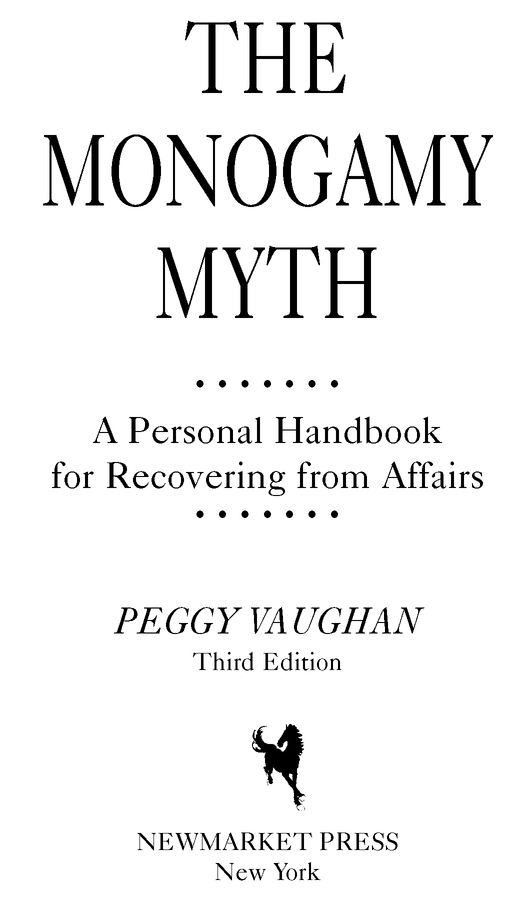Table of Contents
for The Monogamy Myth
An outstanding and wonderfully helpful book.
Harriet Lerner, Ph.D., Author, The Dance of Anger
In a personal voice Peggy Vaughan packs years of expertise into a compelling, down-to-earth guide for couples seeking to survive the trauma of extramarital affairs.
Janis Abrahms Spring, Ph.D., Author, After the Affair
Reading this book will help couples avoid affairs in the first placeor, if the damage has been done, recover and rework their relationship, their trust and commitment. Every engaged couple should be required to read it and pass a written exam.
Diane Sollee, Director, Coalition for Marriage, Family, and Couples Education
This book belongs on the shelf of any person who is or has been involved in an affair, and on the shelf of all those who treat them.
Don-David Lusterman, Ph.D.,
Author, Infidelity: A Survival Guide
Vaughans practical advice about what to dobefore, during, and after the affairis this books backbone. She blends commonsense advice with a fresh approach to an old problem.
Minnesota Public Radio
Vaughan caringly and wisely explains how to recover if your spouseor youshould have an affair. Better yet, she gives advice indispensable to anyone who wants to be married monogamously and stay that wayinto the 21st century.
Lynn Atwater, Ph.D., Professor of Sociology,
Seton Hall University
Unlike so many advice columnists and therapists, Vaughan emphasizes the need for a couple to be open and honest about dealing with an affair. Its a subject that is not only likely to affect the couple itself, but all those around them.
San Mateo Times
Readers praise for The Monogamy Myth
This book saved my marriage, and probably my sanityand maybe my very life.
The Monogamy Myth is the best book I have found to help us work through the emotional turmoil of my partners affair.
Your book is incredible! I have been searching for answers to my wifes behavior, and your book was what I was looking for. It answered every one of my questions.
I want to thank you for your book, which I believe has helped the very most in possibly preserving our marriage and our lives.
I have read your book six times, and its the most healing book I have found. It is the best!
Of about twenty books, yours was by far the most compassionate, comprehensive, and practical.
I am so grateful that you wrote this book. I cant imagine a successful recovery from affairs without it.
I just finished reading your book The Monogamy Myth. It was like reading about my own life. All my feelings, thoughts, and actions were on those pages.
I found your book to be very helpful in dealing with my husbands affairs after twenty years of marriage. I read your book more times than I can count.
Reading your book made me feel validated and less crazyand also less ashamed.
Your book accomplished what our counseling fell short of. Your unraveling of the startling complexity of honestywill be with me to the grave.
After approximately ten readings, your book has almost become a bible to me.
When you expose as much of yourself in your writing as I do, its essential to have a strong base of support and encouragement. Im very grateful for the richness of my personal support system, and I want to publicly express my appreciation to these very special people.
First, to James, my lifelong partner in love and in work, for his constant support for what I have to say and his confidence in my ability to say it. And to the other special people in my life: my son, Andy; my daughter and son-in-law, Vicki and Dan; and my two wonderful granddaughters for the joy of being part of their lives.
I also want to thank those people who have contributed directly to the production of this book. To my agent and friend, Laurie Harper, for her belief in the importance of this work and her personal dedication to its success. To my editor, Theresa Burns, whose keen organizational skills brought essential structure and clarity to the manuscript. And to Keith Hollaman for his significant contribution in handling the editorial details during the final stages of producing the book.
To Esther Margolis and the entire staff of Newmarket Press, who provided the kind of professional expertise and personal support that is the dream of every author. And to Jeff Mariotte, my friend and bookseller, for keeping me up to date on happenings in the book world.
Finally, to the members of BAN (Beyond Affairs Network), with love and appreciation for sharing their lives with meand providing the inspiration for this book.
The extramarital affair has extremely important ramifications in our understanding of human behavior. To ignore this aspect of the human condition would leave great gaps in our knowledge. The psychological, emotional, sexual, and social implications involved are fascinating as well as important.
To date, relatively little of a serious nature has been studied and written about this subject, perhaps largely because we do not like to face ourselves and disturb long-standing self-idealizations and self-serving myths.
But, in fact, the truth does set us free. It is extremely important to examine the dynamics of The Affair. Hiding from the truth has produced enormous destruction to the individual, to marriages and other intimate committed relationships, and to children. The inability to share information, let alone to gain insights that would be conducive to a more healthful situation, has promoted feelings of highly destructive guilt and has led to further counterproductive behavior.
Affairs, especially multiple affairs, do not have to result from a lack of conscience or from inherent immorality, or even from insensitivity. Mutual attraction is not unnatural. Attractions between people do, in fact, go on all our lives. Marriage and even the deepest love, commitment, and devotion do not stop these attractions. How we respond to attraction and temptation has more to do with personal history and psychodynamics than with morality.
When confronted with an affair, what is required is the same as when we attempt to understand and assist with any facet of the human condition. Our approach must be compassionate. Without compassion, our perceptions will be clouded at best and totally obliterated at worst. Compassion not only allows us to have clearer perceptions, it also permits us to recollect experiences and share insights, which is especially necessary in this delicate area of human behavior.



